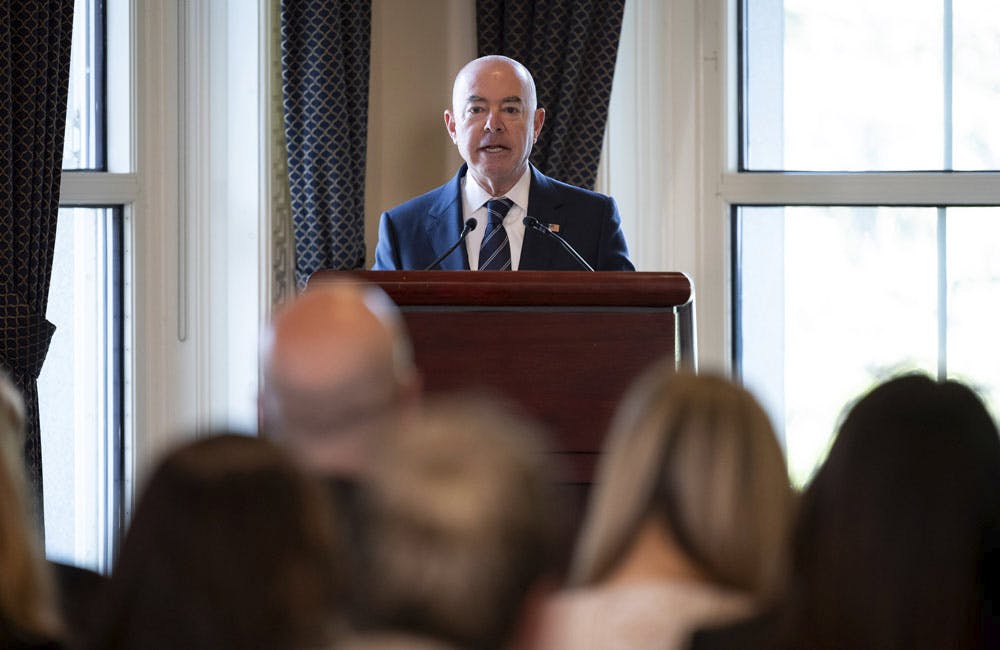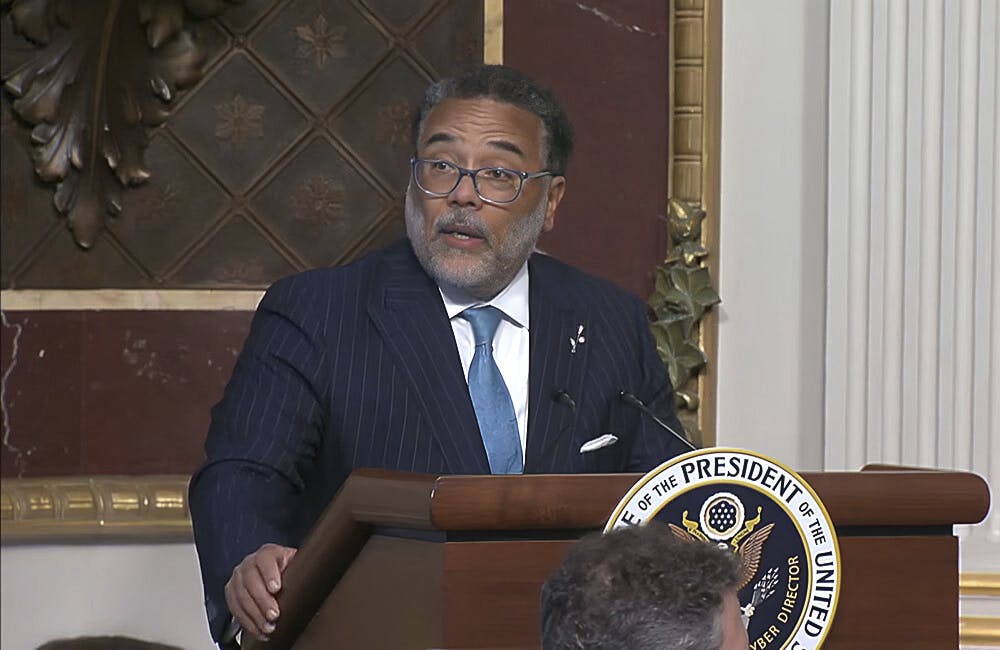NIH Explores AI Opportunities Through Strategic Plan, Partnerships and Programs
The National Institutes of Health is looking to enhance and increase diversity among its AI research workforce.

The National Institutes of Health (NIH) will begin 2024 by advancing its work in artificial intelligence. NIH is collaborating with the National Science Foundation (NSF) and the Department of Energy (DOE) to launch the National Artificial Intelligence Research Resource (NAIRR) steering committee.
According to Dr. Susan Gregurick, associate director for data science and director of the Office of Data Science Strategy, NIH is partnering with NSF and DOE to start the NAIRR pilot in January. NAIRR will provide data sets and AI capabilities to researchers who are interested in artificial intelligence in fields like health care, climate science and energy.
“We’re contributing a high number of quality data sets including imaging and immunology data, as well as data on different chronic diseases. We’re also providing a very large set of COVID data collected through the National COVID Cohort Collaborative (N3C) led by the National Center for Advancing Translational Sciences,” Gregurick said during a recent GovCIO Media and Research HealthCast interview.
NIH will be able to offer health care records and other data to NAIRR in a secure and trustworthy enclave. Gregurick said NIH and NSF will also provide AI-enabled infrastructures, as well as other capabilities and training materials for large-scale AI model development.
“We are also a member of the NAIRR steering committee, so we will help develop policies and programs and architectural principles for the NAIRR,” said Gregurick. “Our priority in the NAIRR is to broaden the participation in data science, including enhancing trustworthy AI and aligning to the other principles of NAIRR that we hope will connect to new communities and new resources.”
Gregurick said NIH has a mission that is focused on ethical AI research and one of goals of the NIH 2024-2028 Strategic Plan outlines new ways to use AI. The agency wants to harness the new innovations in foundational models to build trustworthy AI and construct approaches to reduce risk that are fair, validated and explainable. Additionally, NIH also wants to boost the knowledge and ability of its AI workforce.
“We want to recruit data scientists who are skilled in AI and increase our hands on training in these areas to enhance our intramural computational environment to take advantage of AI,” Gregurick said. “We’re also looking at setting up a secure cloud-enabled generative AI space.”
In addition to the strategic plan, the agency also aims to increase the number of researchers coming from underrepresented communities who can add value to the development of AI algorithms through NIH’s Artificial Intelligence/Machine Learning Consortium to Advance Health Equity and Researcher Diversity (AIM-AHEAD) Program.
“NIH’s AIM-AHEAD program will establish mutually beneficial and coordinated partnerships to increase the participation and representation of researchers and communities currently underrepresented in the development of AI/ML models and enhance the capabilities,” added Gregurick.
NIH will also go into the new year with a new leader, Dr. Monica Bertagnolli, who took over as the 17th Director back in November. Gregurick said AI is a top priority for Dr. Bertagnolli.
“It’s a really exciting time to be at NIH with our new director. Dr. Monica Bertagnolli is truly committed to fair and equitable data science and artificial intelligence among many other priorities,” said Gregurick. “I think that the community at large can really get behind Dr. Bertagnolli and her new vision not just for data science, but for NIH.”
This is a carousel with manually rotating slides. Use Next and Previous buttons to navigate or jump to a slide with the slide dots
-

DHS AI Board Sees Civil Rights as ‘Part and Parcel’ of AI Safety
Secretary Alejandro Mayorkas shared details about the new board's first meeting and how he sees it transforming the agency's AI development.
3m read -

State Department Touts Digital Diplomacy in New Tech Strategy
The new plan outlines ‘digital solidarity’ to counter threats in cyberspace, including malicious artificial intelligence.
8m read -

DHS, DOD Officials: AI is a Teammate, Not a Tool
AI can work alongside government by providing better information to humans for them to make real-time decisions.
5m read -

White House Might Remove Degrees From Federal Cyber, IT Jobs
White House and federal leaders are moving toward skills-based hiring practices to fill critical roles in IT and cybersecurity.
5m read








